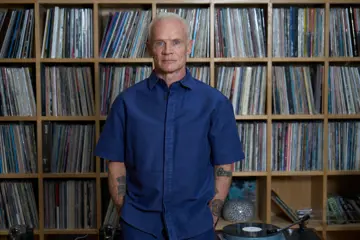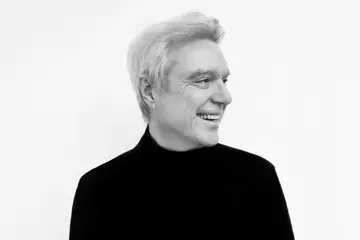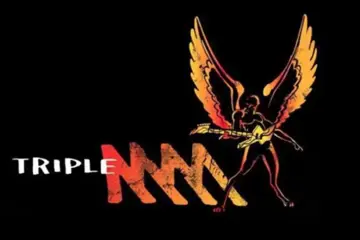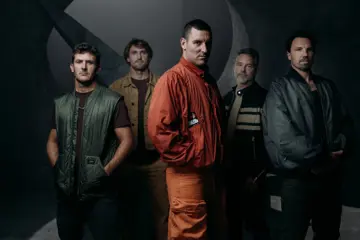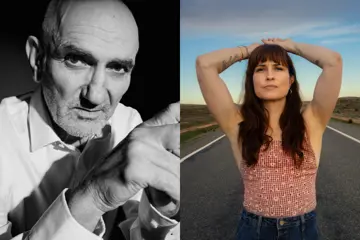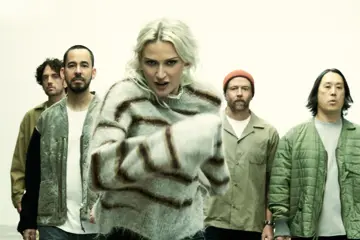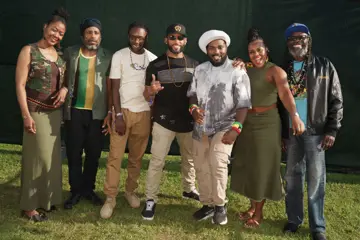Music, as a matter of taste, divides us. You're a Rolling Stones or a Beatles fan. You either worship at the foot of ska or you hate it with a vengeance. Metal heads are proudly a community unto themselves, and good on them. The globalisation of music afforded by technological advances expands our ability to consume it from all corners of the genre-sphere. We are no longer restricted to the selection (or dictation) of disk jockeys and mass media outlets. In 2016 you don't need to hear about a band to find it - it'll pop up on your obscure Spotify playlist. Tastes are diversifying and scattering into smaller and smaller niche pockets… And in the middle there's pop.
'Pop' is often assumed a genre — however its origins secure pop as a derivative of 'popular music'; namely, the music that is widely popular at any given moment. Tame Impala, Drake and Adele may happily co-exist on singles charts. They slide in under different genres and appeal to different sub-cultures, sure, but the argument of 'authenticity' arises when someone compares the musical prowess of Barnett to Bieber. Why?
The supposed authenticity of, say, rock'n'roll, has a tendency to evoke disdain for the umbrella genre of pop. It's degraded as a commercialised shadow of the once pure art of music. In the consumer driven world of 2016, mass marketability and financial gain is everything — protest songs are replaced by a corporate machine that spits out formulaic, simplified music that is guaranteed to top the charts before it hits the stores. These songs are rarely written solely by the artists, but by a highly specialised team of collaborators who entwine their magic under the artist's branding.
"Yet there's an inherent danger in the branding of female pop singers in particular — everything they say or do in the name of activism becomes "inspiring" and "groundbreaking" without the world taking too close a look..."
But Ezra Koenig [Vampire Weekend] described the way Beyonce makes her own music from multiple submissions as "… quite a feat to weave the contributions of many different writers/producers into a cohesive song that tells your own story. To bring your voice to a song like that and have it feel unified is special — it's a form of orchestration." Then again, it took seven writers alone to pen the lyrics of Rihanna's Work [see "Work work work work work work / He said me haffi / Work work work work work work"]. Nothing ground-breaking here.
Don't miss a beat with our FREE daily newsletter
The debate proposing that political protest died along with Bob Dylan, Rage Against The Machine and the Sex Pistols is convoluted. Pop is protesting, but we're too busy complaining about the artists who sing about bubble butts than those who speak out about body image and sexism. You only have to look at a Reddit thread to see this — Pop is: "Pitch corrected BS… The same fucking song… It's not music, it's filler."
Female pop singers in particular are fighting the good fight of empowerment, independence, equality and hailing an end to the cultural norms of domestic violence and body shaming. But it's hard to tell the difference between a strategy curated by management and a genuine act. And yet there's an inherent danger in the branding of female pop singers in particular — everything they say or do in the name of activism becomes "inspiring" and "groundbreaking" without the world taking too close a look at the motivations or the multiple meanings behind their words. Examples of this are emerging in opinion pieces surrounding Bey's Lemonade. The Blaze published a titillating read entitled Beyonce Is Destroying Your Daughter, Not Empowering Her, detailing pages of lyrics that teach young girls "lessons" such as "Use sex as a weapon to possess and to gain revenge" and "Never hesitate to fuck a bitch up."
Because small alternative artists aren't driven so much by the corporate wheel their music is considered higher on the 'genuine' scale than pop music in many areas of public consciousness. When you take a look at movements such as the Australian female music empowerment collective God Queen, yes, small artists are walking the walk as a group without needing the paparazzi to document it. A round of applause for the underdog, please. But emerging artists are in fact more constrained by the corporate wheel than we realise, for one reason — they haven't made a tonne of money yet. Minor artists have shitty contracts and are at the behest of the Big Man record company who dictates the direction of their new album, seen again and again in legal disputes and public outcry a la Terra Naomi and Johnny Cash. Maybe that's why the perceived authenticity of purely independent musicians remains — they're doing it alone for the love and power of the art, not its marketability.
But back to the question of 'good' and 'bad' music — ultimately it's one of personal taste. You're entitled to hate Justin Bieber and idolise Sarah Blasko. Or think Drake is a moron while The Life Of Pablo is brilliant. You're allowed to like only one song by The Amity Affliction and hate all other 'metal', stream the latest from Courtney Barnett and binge watch Lemonade, all while on the Internet buying tickets to some obscure '80s Scottish band's revival tour. The idea that music is, or ever has been, definable as 'good' or 'bad' rests solely on the idea that the art as a whole is comparable on a predetermined built-in standard. And it doesn't exist. So like what you like, and don't listen to the rest.


